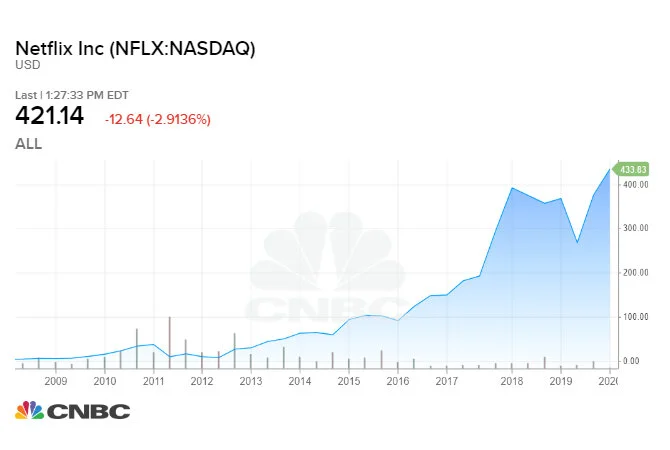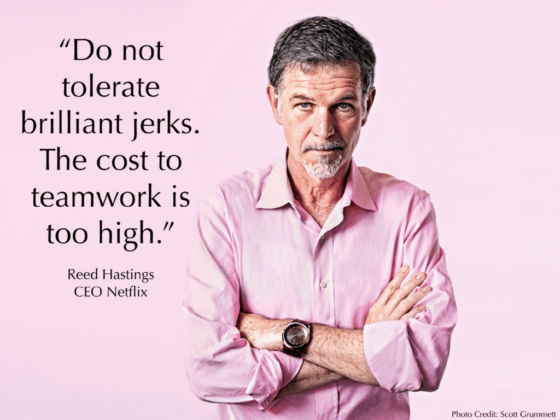Over a 25+ year marketing career if I had a dollar for every time I’d heard “I wanna Just Do It” or a “Where’s my Think Different?” or “Did you see that brilliant Sick Kids VS spot?” I’d be writing this from my private island in the Maldives.
The Monday after the Super Bowl was often the most stressful.
That day where every cloud-managed cybersecurity service, vegan muesli bar start-up or global feminine hygiene brand asked, with deep frustration, why their advertising didn’t feature a lonely overweight kid on a rural highway or a jaw-dropping 3d black and white animation of a product so delicious viewers wanted to lick the screen.
That same idolatry (and deep frustration) is equally prevalent in culture and leadership circles too.
Southwest Airlines, Patagonia, Zappos, Virgin, NetFlix….the much-admired icons and frequently-referenced idols abound. The same degree of deep fascination and oft-repeated folklore.
When Sheryl Sandberg says that the NetFlix Freedom & Responsibility presentation was the most downloaded (and important) document in Silicon Valley history, that’s not faint praise. That’s just the “over 200 million views on Slideshare” non-debatable truth. It’s a brilliant document and, if it were legal, I’d require any leader wanting to run a high-performance organization have parts of it tattooed on their body.
Here’s the stark reality.
Culture, like advertising, can’t be copied.
At best it can be mimicked.
Typically, poorly.
Look I get it. Who wouldn’t want to be Reed Hastings, CEO of NetFlix?
The January 19th article from The Information lists some milestones that any CEO would salivate over.
Over 200 million global subscribers
No longer requiring the issuing of debt to fund growth
The ability to pay back a $500MM bond loan from cash reserves.
And then there’s this observation from CNBC in December 2019:
A $1 million bet on Netflix’s stock placed on Jan. 1, 2010, would be worth close to $43 million today. The 4,181% return beats all current members of the S&P 500, which Netflix joined in December 2010. By comparison, the index as a whole is up 189% over the past 10 years.
Here are some inconvenient truths why copying NetFlix’s culture – or ingesting and deploying the latest fantastic book on the NetFlix culture - isn’t necessarily going to ensure a 4,000% bump in your share price.
You Don’t Have Their Business
I’m not just talking about a global original content rich streaming service and robust recommendation engine. Disney and Apple have one of those.
I’m talking about the core fundamentals of the type of business they operate in – and the distinct requirements that has on the culture required to succeed. If you’re running a nuclear power plant, heavy manufacturing operation or a hospital, you shouldn’t be taking culture advice from a hybrid content creation and technology engineering firm. That’s sheer lunacy.
The reality too often missed is that your culture exists to accelerate, or impede, the delivery of your unique business strategy. It’s not an exercise in happiness and bean bags it’s an exercise in business performance and business success.
Do you know how to align your business strategy with your required (not desired) culture?
You Don’t Have Their Legacy
I’m not talking about beating the Blockbuster of your category although who wouldn’t want a good ol’ “David & Goliath” campfire story for new recruits?
I‘m talking about over a decade of good, bad, brilliant and dumb decisions and actions taken by NetFlix that have molded, refined and solidified their culture. That’s how culture is born and honed. As culture experts like Ed Schein and Stan Slap remind us, there are moments in the trajectory of any organization where the culture sees great success (or significant upheaval and failure) and internalizes and codifies that moment. Those culture breadcrumbs - “When we did X, Y occurred…”, “Remember that time when Engineering tried that…and then the C-Suite did the following?” – you don’t have that same legacy. Your organization hasn’t gotten the same scars from the same set of scrapes.
Do you know when – and what – your organization has internalized as culture milestones? Does everyone in the culture have the same memory of those milestones?
You Don’t Have Their Leadership
I’m prone to dropping this Reed Hastings meme at least once every fortnight. Maybe it’s the pink shirt or the unambiguous arms-crossed body language. More likely it’s the brilliant lesson that is (sadly) followed by so few organizations.
The one unequivocal reality of culture is, while we’re dropping memes, is that it is best defined by the worst behaviour tolerated by management. I’ve no doubt that your leaders have some things that are tolerated, or they turn a blind eye to, that wouldn’t get in the front door at NetFlix. Equally there will probably be leadership behaviours that Reed Hastings could take from your organization and your current crop of C-Suite executives. In truth, there’s one or two anecdotes in “No Rules” where I was left thinking that Reed Hastings can be a bit of a d**k – but that doesn’t matter, he’s not my boss and he aint setting the tone for my organization.
Do you know what your leaders currently tolerate in the behaviour of their people and themselves? And do you know exactly how that builds and nurtures the culture you have or the culture you need?
But it’s not all bad news.
There is some respite and some areas you can aspire to.
You Can Define Your Talent Density
I’m a sucker for a poignant and pithy phrase. I adore the NetFlix term TALENT DENSITY like my daughter adores Rocky Road ice-cream. Such a brilliantly evocative phrase about how NetFlix attempts to get more passionate, deeply skilled operators – talent – per square foot than any other organization in their category. Equally they choose to pay them over the market rate because that talent density is a proven disproportionate multiplier of their success.
Do you know what talent density looks like in your organization? How will the people (not the roles or titles!!) the brilliant humans take you from zero to hero? Who are they? What makes them unique? Why and where do you need them in your organization? How do you attract them? And, how in a global fight for kick-ass talent, do you keep them and keep them performing?
That you CAN do.
You Can Make Accountability & “Fully Formed Adults” A Priority
NetFlix makes no bones about it. Their culture and organization is not for everyone. Their “Keepers Test” is a topic of much furious debate in business and HR circles. However, the part that many organizations could borrow enthusiastically is the notion of only hiring “fully-formed adults” and holding them relentlessly accountable. From Reed Hastings all the way down to the newest, freshest junior recruit. No places to hide because what’s expected of you – and the manner in which you deliver against those expectations – is clear, concise and codified. NetFlix are immovable on this – and their talent of fully-formed adults rise to that expectation with gusto. Or they don’t and they leave. Either way holding your people accountable – and holding yourself to that same measure – is entirely within your remit and responsibility.
Do you hold your people and yourself accountable to the type of behaviours and actions that build a high-performing culture? Have you stripped away ambiguity – or a two-tier system that has one set of rules for some and another set for others – from your organization?
That you CAN do.
In closing, I readily admit I’m a NetFlix fanboy – of their product, of their success and certainly of their high-performance culture. It’s hard not to be inspired by their stories and awed by their stock market returns. But I’m hesitant, even loath, to suggest that a Reed Hastings “Rinse & Repeat” is what your organization needs.
You’re NOT NetFlix.
But, there’s no reason, you can’t be a high-performing kick-ass culture in your own right. If you take full and unambiguous accountability for building and nurturing your own culture and relentlessly committing to it in the way that NetFlix does.
And, if you don’t, well that’s NOT okay!
For the record, here’s the one ad that I still idolize and covet and wish that I had done. A boy can dream!!


